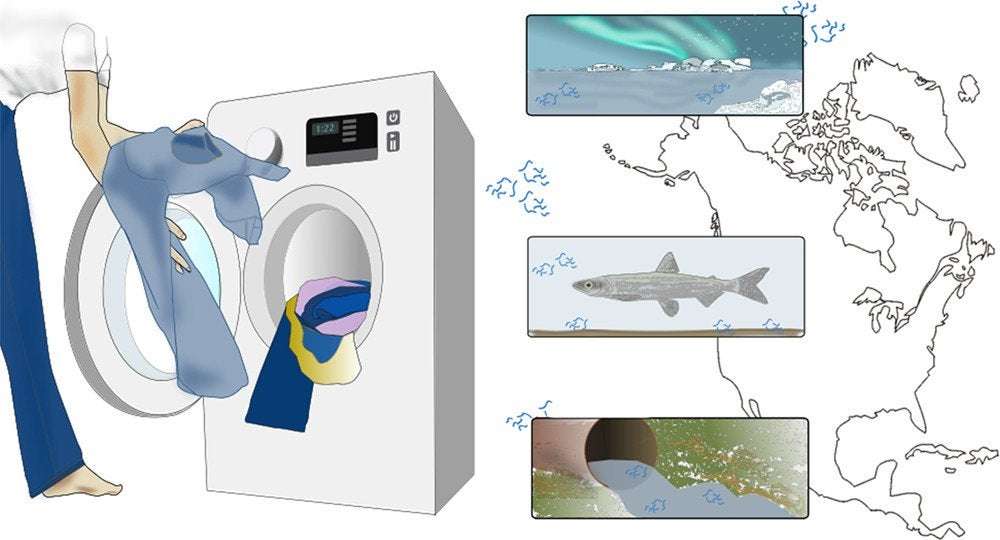Article Views are the COUNTER-compliant sum of full text article downloads since November 2008 (both PDF and HTML) across all institutions and individuals. These metrics are regularly updated to reflect usage leading up to the last few days.
Citations are the number of other articles citing this article, calculated by Crossref and updated daily. Find more information about Crossref citation counts.
The Altmetric Attention Score is a quantitative measure of the attention that a research article has received online. Clicking on the donut icon will load a page at altmetric.com with additional details about the score and the social media presence for the given article. Find more information on the Altmetric Attention Score and how the score is calculated.

lyndondefarge on September 9th, 2020 at 02:08 UTC »
Seems like the intent of this post is to dilute the conversation about the considerable harm of microplastics, which are an environmental catastrophe.
Denim is made from cotton, and—while certainly anthropogenic—is demonstrably less impactful than microplastics.
caterpillar_mechanic on September 9th, 2020 at 01:15 UTC »
This is the kinda thing they put out to make you the individual feel like environmental problems are caused by your actions and covering the tracks for the corporations dumping waste in the ocean, cargo ships emitting 1000x what your car does every hour, airplanes burning hundreds of thousands of gallons of fuel a day. While small individual deeds add up for sure we need to make genuine efforts to stop the biggest and most careless polluters
49orth on September 8th, 2020 at 22:33 UTC »
The fibres in jeans generally are biodegradable.
Other clothing made of plastics, such as polyester, are problems when it comes to microfiber pollution.
Edit: fabrics and clothing are products that consumers can choose based on the environmental impacts they represent.
The best are linen, organic cotton, hemp, and recycled clothing.
The worst include leather & animal derivatives, industrial cotton, and synthetic fibers.
For more information, please see here.
Edit 2: Wool (& other natural products) and leather/hides have been around a long time and may have positive aspects compared to alternatives.